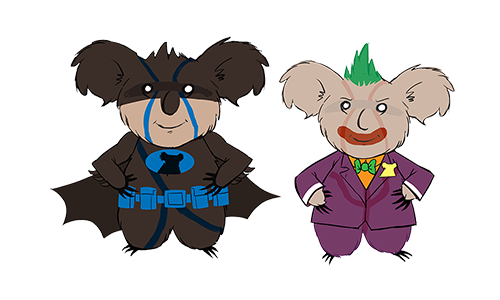In Australia, the koala has been represented and portrayed as a victim.
Non-profit organisations and koala hospitals have heavily sold the story of the devastating impact humans have had on koala populations, noting their decline since the 1920's. While this is true - the koala is a victim of social change, and it's a well deserve title – there is more to the story.
Despite society changing so quickly - with new technologies, smarter industries and more connected citizens – koala hospitals, non-profits and conservation groups have not kept up with these changes. Their story has not changed since the 70's. Sure, stories citing statistics such as the "10,000 koala road kills in Queensland" and the headline that "all koalas will be dead in five years" bring a strong element of shock value, but what next? These stories have been recycled for years and nothing has changed for the koala.
The fragmentation of koala habitat will continue to increase, especially if the same messages are continually recycled to the public. So, what should the koala hospitals and non-profit organisation do today?
I think Australians are tired of the same old rhetoric. I think that to get the attention of the public again, they need to follow some of the examples illustrated by the captivity management sector.
But then, the question is, which business model would suit them?
Well, I would know!
I think that they need to start marketing the koala differently. Sure, continue talking about the losses we are having; that will never stop. But don't continue to sell the koala as a victim and raise donor funds from sympathy alone. Diversify and create plenty of options to raise funds and generate awareness, rather than just using sympathy as a tool to attract donors. Sympathy positions the koala as a victim and this tool has its limits, and does nothing to showcase the robustness of the koala.
The captivity sector has been very successful in selling the koala in a completely different light; we celebrate them as heroes, making them the centre of attention. This model has been more financially rewarding and has attracted people from all around the world to meet the koala, get up closer to them, take photos, and learn about them!
This business model has been so successful that non-profit organisations attacked the captivity sector, vilifying them in the press and creating a divide between the two camps: captivity and non-profit.
Instead of acting on behalf of the koala and collaborating across sectors with captivity management, government and corporate, the non-profit sector has incited anger and division.
Koalas have the potential to generate billions of dollars per year and to create about 9000 jobs annually, but instead of positively embracing this sector and working toward growing the industry, they are trying to cripple it.
Only recently has the koala hospital north of Sydney started to embrace commercialisation and begun changing their messaging to show a different, more honest side to the koala.
The koala is a fantastically robust creature that has a high profile in Australia, and has the potential to generate more income and jobs in Australia, educate the community, and change mind-sets toward nature within communities.
If non-profit organisations continue to rely on public sympathy by portraying the koala as a victim, they risk alienating the public from the true nature of the koala. Essentially, they are exploiting the koala for donations, without giving those donors a true sense of who the koala is.
I regularly witness various koala hospitals and non-profits ask for donor funds in the pursuit of promoting their cause. There are constant pleas through crowd-funding campaigns and across social media – always using the injured and victimised koala as a prop for the cause.
While it is my belief that this approach is needed to a certain degree, it should only be used in moderation, as it does not offer donors and the Australian public the full picture. This narrow 'victimisation' strategy does not show the Australian public the unique personalities, characteristics and behaviours of the koala.
How long will it take for these non-profit groups to realise that using the koala as a victim is not their only source of power?
Marcus The Koala Man

